So I Just Played: X-Com: Enemy Unknown
By tarfuin 16 Comments
The developers of X-Com: Enemy Unknown had an impossible task laid at their feet. First, they needed to revive the classic X-Com series of games. Not only that, they needed to do so in a way that was accessible to new players. They also needed to stay true to the brutally difficult and unforgiving roots of the franchise. That all sounds difficult enough, but on top of that this game needed to be a commercially successful AAA turn based strategy game. Any one of those things is almost impossible. All together? Forget about it.
X-Com Enemy Unknown delivers with a bullet on each and every one of those points. I can’t speak specifically to its appeal to original X-Com players, because I wasn’t one, but from what I hear this version is a pretty well realized modernization of the game. Furthermore, this game delivers in so many other ways that I didn’t think were even remotely possible.
At its core, X-Com is almost two games wrapped into one. The first game is the on-the-ground battles, where you take your 4-6 member military crew into hostile territory and engage in turn-based combat with aliens. The second game is the overworld aspect, where you upgrade troops and equipment, manage staff and facilities, and allocate finances with a budget that is always woefully less than you need. Both aspects of the game are incredibly addictive and satisfying for completely different reasons.
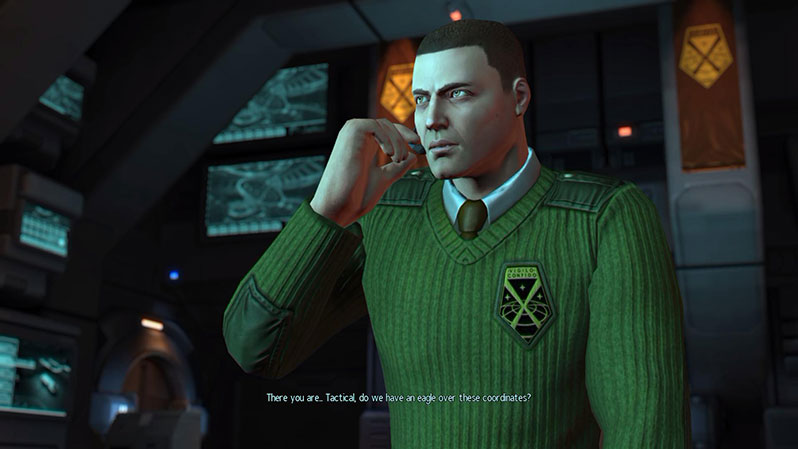
The overworld stuff is great because it directly affects your on the ground performance and vice versa. You spend money on upgrades for your troops so they perform better. Your troops gather resources in the field for you overworld operation. Those resources feed into more upgrades and so on. The real resource in the overworld, however, is time. Everything takes time. You can only do one scientific project and one engineering project at once, and each one could take weeks to complete. In the meantime every day that passes is another day the alien attacks on Earth become more aggressive. Time management and choosing which projects are of the highest priority is extremely stressful. If things aren’t going well on the ground because of a lack of resources or poor performance by your troops, some nations might withdraw their funding from the program, leaving you even more strapped.
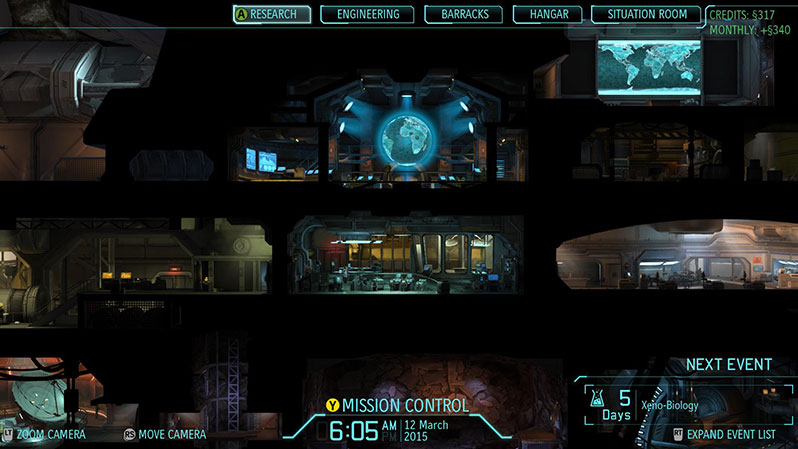
On the ground, the entirety of combat is one long exercise in patience. The game is turn-based, and each turn your troops each get two actions. These can be move and shoot, move and move again, or move and be on alert for enemy (overwatch). Shooting typically ends that troop’s turn. Patience is key because you never know where the enemy is going to come from, and you sure as hell don’t want to reveal a bunch of enemy troops on your last troop’s final move, because now it’s their turn, and they see you. As a result, each turn usually is a series of baby steps forward until you lose your patience a bit, and when you lose your patience, you die.
Your troops start out as basic military and can level up. Once they level up they become a specialty such as sniper, heavy, or support. Each specialty has its own mini skill tree as it continues to level up. An interesting implementation here is that each level a troop earns gives you a choice between two different new skills. You get to pick one and only one, and you can’t spend later levels on previous skills. This means each new level presents you with a choice of two skills with some brutal tradeoffs.
For example, my favourite class is the sniper. The sniper can not shoot their sniper rifle after moving. This is a pretty big pain, because keeping them positioned well in battle is key. At one point your sniper will rank up and get an option to gain a skill that lets them shoot after moving, which sounds amazing. And yet I never take that skill. I take the other one, called squadsight, which allows the sniper to take a shot from the perspective of any of their allies on the battlefield. Basically as long as you have one of your troops with the barrel of their gun pressed against the enemy’s head, the sniper 100 yards away will have that same 100% chance to hit. It’s these kind of really tough choices at each level that make the classes really dynamic.
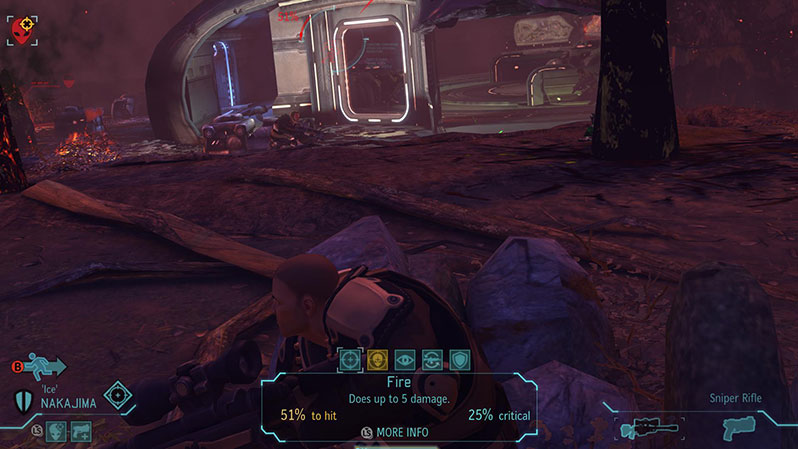
X-Com rewards perfection, and punishes even the smallest of mistakes. Even if none of your troops die on a mission (and that’s a big ‘if”) you might still have problems. Each character has a health bar, obviously. If an alien hits your Assault class troop for half his health, your troop trucks on like a good soldier with no ill effects until the end of the mission. I’ve always found it odd that characters in games don’t get worse in performance even if they are within an inch of death, well X-Com has me covered. If any of your troops takes damage in combat there is a good chance they’ll come back to the base “wounded”, which means you could be without their services for anywhere from 2 days to 3 weeks, depending on how badly they got roughed up. Because of this mechanic and the odd death, you really need to keep a stable of 10 or so capable troops ready to jump in at a moment’s notice, so when things are going well it’s still a good idea to shuffle in a new recruit every once and a while to get them seasoned.
The excellence of the gameplay in X-Com had me wonderfully addicted for several weeks, but something I wasn’t expecting was the emotional impact it was capable of. The military personnel in the game are not essential to the story, so literally any one of them can die at any time. This is refreshing from a story standpoint because you never get the feeling that any character is untouchable purely for story reasons. You become attached to the soldiers who have served you over the entire campaign. They get nicknames, and you feel really attached to them. The game doesn’t put this on you. You cultivate this attachment yourself. Your squad is badass! Your squad can do anything!
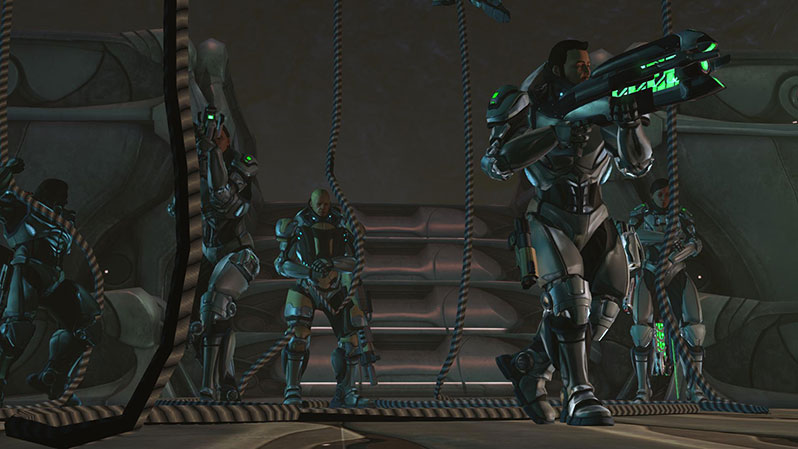
Then it happens, you make one tiny move and put them further out there than you should have. Bam! They’re dead. One of the most tragic parts of this is that the game rolls right on as if nothing ever happened. This character you’ve invested so much into has just been wiped off the Earth. They’ve rescued countless comrades and saved many missions from failure. Then they die, you plod on an finish the mission and you see this.
Casualties: 1. Rating: Good.
No it is not good! In what way is it good? The worst part is, I don’t even remember her name anymore. So thank you, blonde female Russian sniper class. You were truly the greatest of them all.
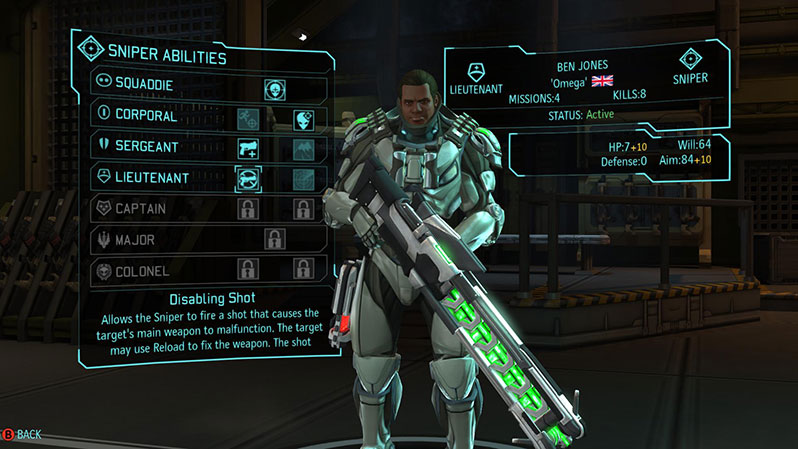
So there’s X-Com: Enemy Unknown for you. A turn-based military strategy game with overworld meta game elements. It successfully stays true to the hardcore original series while welcoming new players and appealing to the mainstream audience. Above all that, it illicits strong emotional connection where there shouldn’t be any.
